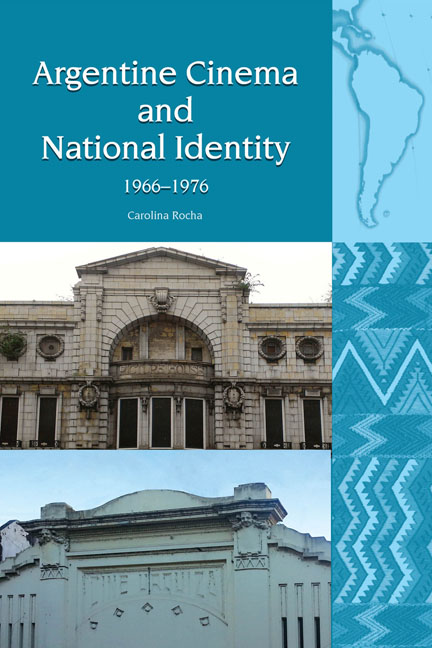Introduction
Summary
In March 1966, an article about the Argentine School for Cinema in the daily newspaper El mundo urged Argentina to usher in a new era of filmmaking, one that would reflect its country's greatest hopes, fears, and ideas:
Desde fines del año 1957 recién ahora podemos ponerla en marcha después de tantas esperanzas acumuladas […] Los países más adelantados, Francia, Italia, Rusia, Estados Unidos y Japón y otros envían sus ideas, muestran su país al exterior a través de ese vehículo que es la cinematografía […] El cine argentino debe y puede manifestarse, convirtiéndose adentro del país en instrumento de opinión de todos los argentinos, puede y debe ser fuera de nuestro país el mejor embajador de nuestra industria.
[Since the end of 1957, it is only now that we can implement it after so much hoping […] The most advanced nations, France, Italy, Russia, the United States, Japan, and others, send their ideas, showing their country abroad through the means of cinema […] Argentine cinema can and must manifest itself, becoming a means of expressing the opinions of all Argentines within the country; outside of our country, it can and must be the best ambassador of our industry] (‘Escuela,’ 1966, 16)
Making Argentine cinema a distinctive brand and establishing a school for cinema in which directors, scriptwriters, and technicians could be trained meant greater professionalization for those involved in film production in Argentina. It also constituted a precondition for representing Argentine-ness (argentinidad) on local and foreign screens. Just as Andrew Higson explains that tracing the development of British nationhood corresponds to analyzing filmic production of the past (2000a, 35), so presenting the definition of Argentine-ness and its cinematic depiction in the decade 1966–1976 constitutes a central endeavor of Argentine Cinema and National Identity. This study aims to situate Argentine film during those years in its historical context, taking into account the overall landscape of filmmaking in Argentina. Similar to other media in the artistic domain—the visual arts and music— Argentine film was seen as a medium that would allow a dialogue with the cinematographic productions of more technologically advanced countries (Giunta, 2008, 23). In 1966, Argentine cinema was therefore encouraged to create and circulate images about the nation, providing continuity with the blossoming film production of the late 1940s and early 1950s.
- Type
- Chapter
- Information
- Argentine Cinema and National Identity (1966–1976) , pp. 1 - 14Publisher: Liverpool University PressPrint publication year: 2018



